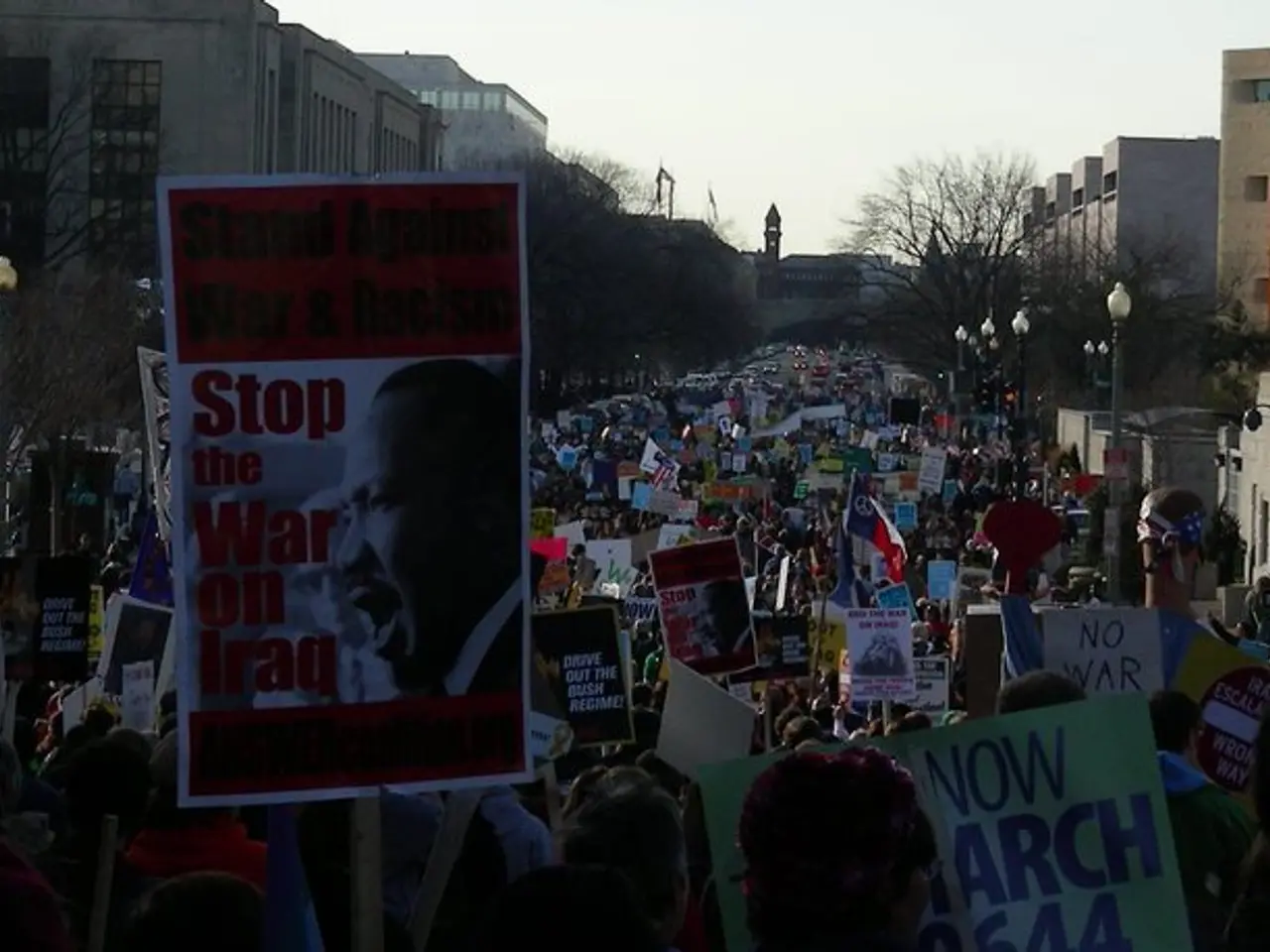Pro-Palestinian Activists Accused of Attacking Embassies: Is Their Actions Legal?
In a series of recent events, pro-Palestinian activists have been occupying diplomatic missions in various cities across the United States and beyond, raising concerns about the safety and security of these facilities.
The encampment outside the Israeli consulate in Houston, Texas, has been a focal point of these protests. The demonstrators, dressed in keffiyeh and black bloc attire, have been chanting slogans such as "There is only one solution, Intifada revolution," and "Death, death to the IDF." This encampment has been closely connected with the University of Houston's chapter of Students for Justice in Palestine (SJP), the Houston chapter of the Palestinian Youth Movement (PYM), and Palestine Solidarity TX.
Similar encampments have been reported in cities like San Francisco and Washington, D.C., where diplomatic sites have already faced such occupations. In Washington, D.C., the Israeli embassy dealt with a Kibbutz encampment for months, with activists remaining outside 24/7 and constructing a megaphone wall.
The Houston standoff continued into the night, with officials bringing barricades and deploying mounted police. The encampment resulted in arrests, but the protesters have shown no signs of backing down.
The protests have not been limited to the U.S. Demonstrators have chained the gates of the Egyptian consulate in Istanbul and attempted to do so in New York City. Anti-Egypt protests have erupted in over 16 countries, accusing Egypt of complicity in Israel's "genocide."
The targeting of diplomatic infrastructure has been a topic of discussion at events like the People's Conference for Palestine in Houston. Mohammed Nabulsi, a Houston-based lawyer and member of the Palestinian Youth Movement, has spoken about the importance of such actions. Anas Habib, an activist, chained the gates of the Egyptian embassy in the Netherlands, an action praised by Nabulsi.
While these actions are a recent tactic of the radical pro-Palestinian activist fringe, they pose a challenge to international law and domestic regulations that strongly protect foreign embassies from occupation. Article 22 of the Vienna Convention on Diplomatic Relations places a special duty on the receiving state to protect diplomatic missions against intrusion or damage.
Prohibiting takeovers of diplomatic missions would likely meet the standard of reasonable, content-neutral restrictions on speech based on time, place, and manner. However, the question remains as to whether these actions will continue and whether more diplomatic missions will face similar encampments.
As of now, Israeli consulates in cities such as Atlanta, Boston, Chicago, Miami, Los Angeles, New York City, San Francisco, and the embassy in Washington, D.C., may face similar encampments. There are no specific US cities named as potential targets beyond the already mentioned cases of Houston and Washington, D.C., in the provided search results. However, both SJP and PYM have the national presence to activate and push their chapters to target consulates across the nation.
This ongoing situation is a testament to the passion and determination of the pro-Palestinian movement, but it also raises concerns about the safety and security of diplomatic missions and the potential for escalating tensions.
Read also:
- United States tariffs pose a threat to India, necessitating the recruitment of adept negotiators or strategists, similar to those who had influenced Trump's decisions.
- Weekly happenings in the German Federal Parliament (Bundestag)
- Southwest region's most popular posts, accompanied by an inquiry:
- Discussion between Putin and Trump in Alaska could potentially overshadow Ukraine's concerns







